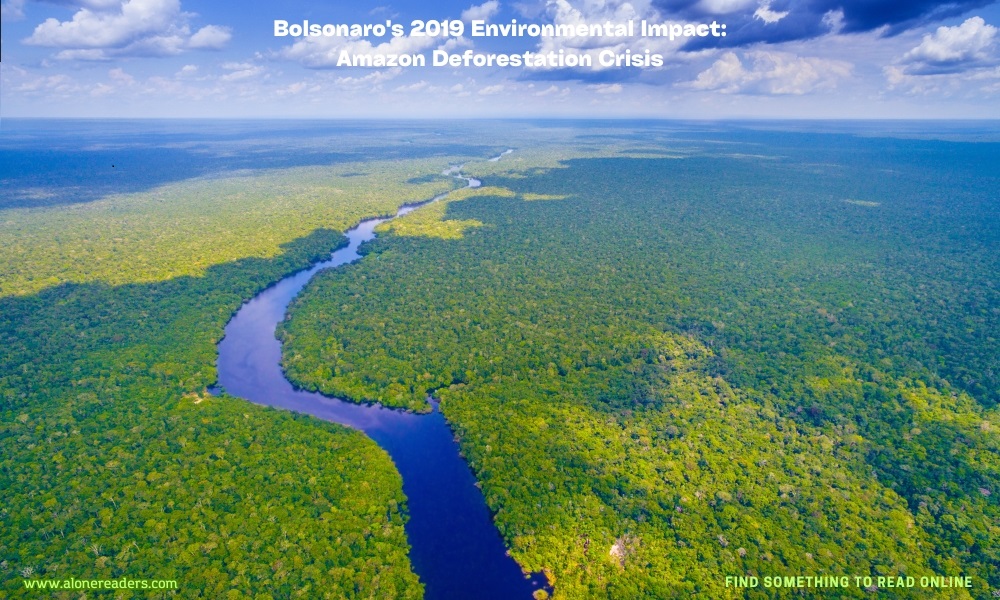
In 2019, Brazil's environmental policy landscape underwent significant transformations following the election of President Jair Bolsonaro. Known for his pro-agribusiness stance, Bolsonaro's administration has often been criticized for its approaches to environmental regulation, particularly concerning the Amazon rainforest. This pivotal year marked a turning point, as deforestation rates soared, drawing global attention and concern.
Bolsonaro’s policies prioritized economic development over environmental protection, a stance that resonated with his electoral base, particularly among agribusiness leaders and landowners. His administration weakened environmental enforcement, which critics argue directly contributed to the increase in illegal land clearing and logging activities. The Brazilian National Institute for Space Research (INPE) reported a sharp increase in deforestation rates; more than 10,000 square kilometers of rainforest were lost in 2019 alone, the highest since 2008.
The rollback of environmental protections under Bolsonaro's government was multifaceted. One of the most significant changes was the reduction in the power and reach of IBAMA, Brazil's main environmental agency. Budget cuts and personnel reductions hindered the agency’s ability to enforce laws and impose fines on illegal loggers and miners. This was compounded by Bolsonaro’s public criticism of the agency, which he accused of hindering economic growth.
Moreover, Bolsonaro's regime openly advocated for the exploitation of the Amazon for mining and agricultural purposes. He argued that such measures were necessary for Brazil’s economic development, particularly for the impoverished regions of the Amazon. This perspective was met with severe backlash from environmentalists and indigenous communities, who have long seen the Amazon as critical to their survival and to global biodiversity.
The international community expressed deep concern over the surge in deforestation. High-profile figures and organizations called for action, fearing that the Amazon, often referred to as the "lungs of the Earth," was approaching a tipping point that could have catastrophic consequences for global climate change. The Amazon not only absorbs massive amounts of carbon dioxide but also produces significant oxygen, playing a crucial role in moderating global temperatures.
Economic interests, however, often overshadowed environmental concerns. The Bolsonaro government facilitated new legislation and executive actions that made it easier to register land claims in the Amazon, which, while intended to boost economic activity, led to increased deforestation. These policies have been linked to a rise in land conflicts and violence, as well as to the marginalization of indigenous populations, who often found themselves powerless to defend their lands against powerful agricultural and mining entities.
Despite domestic and international backlash, Bolsonaro maintained that his policies were misinterpreted by the media and by environmental activists. He claimed that Brazil had been unfairly targeted in the global discourse on environmental degradation, arguing that other countries had historically pursued economic development at the cost of environmental destruction but faced less scrutiny.
As the year progressed, environmental NGOs and activists ramped up their efforts to combat deforestation through legal battles, public campaigns, and international pressure. These groups argued that protecting the Amazon was not only about conserving biodiversity but also about respecting the rights of indigenous peoples and ensuring the health of the global environment.
The consequences of the 2019 policies are still being felt today, with ongoing debates about how best to balance economic development with environmental preservation in one of the world’s most vital ecological zones. The Amazon’s fate remains a contentious topic in global environmental politics, symbolizing the broader struggle between immediate economic benefits and long-term sustainability.
In conclusion, President Jair Bolsonaro's environmental policies in 2019 had a profound impact on Brazil's Amazon rainforest, igniting widespread concern over the future of this invaluable natural resource. The increase in deforestation rates not only threatened biodiversity and indigenous communities but also posed broader questions about the global commitment to environmental sustainability. As the world continues to grapple with climate change, the management of the Amazon rainforest remains a critical issue on the international stage, reflecting the complex interplay between national interests and global ecological responsibility.